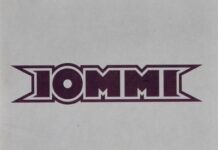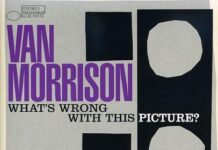Iggy Pop & The Stooges are enjoying an incredible renaissance. For one,
the 2010 Rock and Roll Hall of Famers have a book — The Stooges: The
Authorized and Illustrated Story. They’ve also reassembled after losing
guitarist/bassist Ron Asheton, and brought back guitarist James Williamson,
who’s been away from the music business for three decades, to hit the
road. And there’s the Legacy Edition of Raw Power, the
sneering, slobbering dead-end 34-minute slab of nihilistic aggression unleashed
on an unsuspecting (and largely, unreceptive) public in 1973. Remastered and
bundled up in a myriad of configurations. Raw Power is inarguably
a major sign post pointing directly at what would eventually become known as
punk. And we all know what that led to.
Raw Power was originally intended as an Iggy Pop solo album
and a comeback for the then down-and-out rock and roll wild man. The future
of The Stooges hung in balance when Pop signed with David Bowie’s management
to make a new record. He went to London and called guitarist James Williamson,
another Michigan native, and the two began putting ideas together and writing
material. Auditioning numerous English rhythm sections, Pop and Williamson opted
for the sturdy thunder of the Asheton brothers. Ron Asheton had been the Stooges
guitarist on the group’s previous two albums, but he was reluctantly relegated
to bass. Together with brother Scott on drums, the two made it work and provided
a functional foundation. Suddenly, Raw Power was no longer
a solo album; it was to become the third and most celebrated Stooges album of
them all.
Unrefined and savage, who couldn’t feel the surge of “Search And
Destroy” and “Your Pretty Face Is Going To Hell.” Coming out
in 1973 — the year of The Dark Side Of The Moon, Quadrophenia
and Brain Salad Surgery — the songs on Raw Power
are the complete antithesis of the heavy baggage and intricate inner workings
comprising so many popular records of the day. The 60s style garage-band sloppiness
mpst definitely gave the record its edge, but it was the lump-in-your-throat
guttural vocal of Pop and the bloody, smeared peanut butter image that came
with it that added the alluring danger. Speaking of which, the acoustic ring
of “Gimme Danger” sounds the alarm: it’s time to tear the
rabbit ears off the psychedelic playground, just as “Penetration”
comes along to finish the job. Where do you from here?
“Shake Appeal” is probably the closest thing the album had that
resembled a single, but it and the rest of the album didn’t receive the
intended push Bowie and his manager Tony DeFries had promised. In fact, DeFries
put the kibosh on Pop and Williamson’s original mix, forcing the band
to wait for Bowie to supposedly come rescue and revive the spirit of Raw
Power. Theories abound as to why the Thin White Duke’s mix didn’t
mesh with what The Stooges had in mind. It would be another 24 years until the
public got their hands on Pop’s mix, and the differences are substantial. Legacy
will continue to ship editions of Raw Power with the Pop mix,
but the Legacy Edition has a remastered Bowie mix that ups the ante.
The second disc is called Georgia Peaches, recorded live in Atlanta’s
Richards club in October 1973. Among the nine numbers here, three are from Raw
Power, while some of the other tracks were still in development at the
time, eventually appearing on the Stooges’ official 1976 live album, Metallic
K.O. There are also two bonus studio tracks — “Doojiman,”
an outtake from the Raw Power sessions and a rehearsal of “Head
On.” Rounding out this double-disc set is a booklet highlighted by an
insightful essay from Henry Rollins, photographs from Mick Rock and words of
praise from Lou Reed, Joan Jett, Tom Morello and other admirers. A four-disc
Deluxe Edition includes rarities, outtakes, alternates and a 30-minute
DVD appropriately entitled The Making of Raw Power.
As history tells us, Iggy and The Stooges soon fell apart after Raw
Power. Pop would go on to a notable solo and acting career, Williamson
became an electrical engineer, and the Asheton brothers played sessions, made
a few obscure records and pretty much faded from the scene. Come 2003, Pop and
the Asheton Brothers reunited as The Stooges, played to thunderous ovations,
recorded the marginally better The Wierdness, and jump back
on the gravy train. When Ron Asheton passed away unexpectedly in January, Williamson
stepped in on guitar. Pop said The Stooges may have died with Asheton, but with
Williamson, Iggy and The Stooges are an ongoing concern. Whether or not, they
have another Raw Power in them is something fans will be debating
with a watchful eye and a curious smirk. Iggy would be proud.
~ Shawn Perry




















